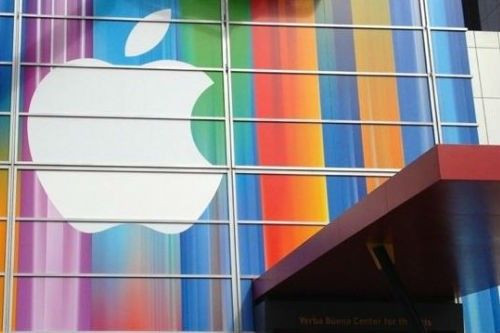Apple Joins Cadre Of 60 US Companies Including Facebook, Intel And Others To Support Gay Marriage At Supreme Court

Cupertino tech giant Apple (NASDAQ:AAPL) has joined prominent Republicans, ex-military leaders and 60 other U.S. companies, including Facebook (NASDAQ:FB), Intel (NASDAQ:INTC) and Morgan Stanley (NASDAQ:MS), who have signed on to a filing that will be presented to the Supreme Court in favor of the nationwide legalization of gay marriage in the United States.
According to a Bloomberg report, while the group now wants to include U.S. President Barack Obama to its cadre, the Obama administration is yet to confirm whether it will take part in the grouping to back same-sex marriage at the court.
Obama “has not yet said there is a constitutional right to marry, but he has been very careful not to say there isn’t… The time for him to say it is is now,” Bloomberg has quoted Evan Wolfson, president of Freedom to Marry, a New York- based national gay rights group, as saying.
The report says that the group of gay marriage supporters in question will argue that California’s Proposition 8, a 2008 initiative that banned gay marriage in the state, should be overturned. It will also urge the court to invalidate Section 3 of the federal Defense of Marriage Act that defines marriage as between one man and one woman.
The group argued in the brief that other than the nine states where same-sex marriage is permitted, workplace morale and recruiting are harmed in the remaining 41 states. The court is scheduled for hearing for both the cases on March 26 and 27 respectively.
It’s worth mentioning here that Apple had publicly opposed the California law and had donated $100,000 to the "No to 8" campaign.
Here’s what the company said regarding its stand against Proposition 8:
Apple is publicly opposing Proposition 8 and making a donation of $100,000 to the No on 8 campaign. Apple was among the first California companies to offer equal rights and benefits to our employees' same-sex partners, and we strongly believe that a person’s fundamental rights including the right to marry should not be affected by their sexual orientation. Apple views this as a civil rights issue, rather than just a political issue, and is therefore speaking out publicly against Proposition 8.
Apart from Apple, Facebook and Intel, other companies that have supported the brief to be filled in the Proposition 8 case included big names like Abercrombie & Fitch Co. (NYSE:ANF), Alcoa Inc. (NYSE:AA), American International Group Inc. (NYSE:AIG), Becton Dickinson & Co. (NYSE:BDX), EBay Inc. (NASDAQ:EBAY), Marsh & McLennan Cos. (NYSE:MMC), NCR Corp. (NYSE:NCR), Nike Inc. (NYSE:NKE), Oracle Corp. (NASDAQ:ORCL), Office Depot Inc. (NYSE:ODP), Panasonic Corp. (TYO:6752), Qualcomm Inc. (NASDAQ:QCOM), Sun Life Financial Inc., Xerox Corp. (NYSE:XRX), Zynga Inc. (NASDAQ:ZNGA), Barnes & Noble Inc. (NYSE:BKS) and Caesars Entertainment Corp (NASDAQ:CZR).
Lawyers at the Orrick, Herrington & Sutcliffe law firm, which is representing the group have released a copy of the argument that says: “No matter how welcoming the corporate culture, it cannot overcome the societal stigma institutionalized by Proposition 8 and similar laws.”
According to attorney Joshua Rosenkranz, companies believe that the ban on gay marriage and other laws like that "inflict real and wholly unnecessary injury on business,” Reuters has reported.
Here’s what Rosenkranz has written in the Proposition 8 brief:
By marginalizing same-sex couples and foreclosing gay men and lesbians from forming 'married' families, these bans on equal access to marriage stigmatize gay men and lesbians and deprive them of the benefits intrinsic to marriage… Even if a corporation welcomes gay and lesbian unions, it cannot overcome the societal stigma institutionalized by Proposition 8 and similar laws.
Rosenkranz also points out "a strong business case" in legalizing gay marriage. He argues that banning gay marriage "can impede business efforts to recruit, hire and retain the best workers.”
© Copyright IBTimes 2025. All rights reserved.






















